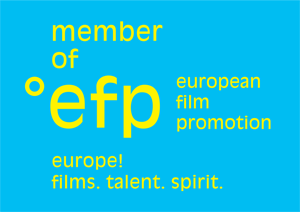Starting tomorrow, I'll get up late (Film) (first feature) (Da domani mi alzo tardi)
by Stefano Veneruso
original title:
Da domani mi alzo tardi
directed by:
cast:
John Lynch, Gabriella Pession, Douglas Dean, David Wayne Callahan, Leda Conti, Amira Casetti, Nicoletta D'Addio, Sergio Di Paola
screenplay:
Anna Pavignano, Stefano Veneruso, from the novel by Anna Pavignano "Da domani mi alzo tardi"
cinematography:
editing:
Fabio Sormani
set design:
costume design:
music:
producer:
production:
30 Miles Film, Rai Cinema, supported by Ministero della Cultura
country:
Italy
year:
2022
film run:
107'
format:
colour
release date:
14/02/2023
festivals & awards:
- Giffoni Film Festival 2023: Evento Speciale
In an empty and dreary house in North America, a man and a woman (Gaetano and Anna) wander around, talking about how they can restore its original charm in time for the return of its owner, who’s been away for a long time, Massimo Troisi, the main character of this story.
Massimo wants to reappear silently, without anyone knowing. He contacts Gaetano and Anna: his childhood friend, and the woman with whom he’d shared his life and his work. Their reunion is very emotional and, after the first silent and intense embraces, they agree upon their strange pact to not speak of anything that has happened during the years in which they were apart.
Massimo spends the first few weeks of his return to Los Angeles fixing up his home. Meanwhile, Anna and Gaetano decide to take action for him, contacting a producer and promising him Massimo Troisi’s new film.
Anna and Massimo rent a house by the sea, in Naples (Italy), to write in total isolation.
In the new situation, chronic slacker Massimo refuses to think about work and spends his days doing nothing. Despite this, Anna is able to make him promise to stop being lazy as he’s always been. He, to show good faith, proposes beginning to get up… late in the morning, at 11 a.m. He claims that this is good progress, seeing as though he usually gets up very late, at two in the afternoon!
Ideas for the film continue to lack, and it seems to Massimo that all of his past has vanished from his memory. Even though he's perfectly healthy, despite the heart transplant he's undergone, everything intense and funny that he once had to say seems to have left him when his old heart did.
And so it starts, in the house on the beach, day-to-day life, marked by narrations: the happiness and beauty that Anna and Massimo shared, together with the cheating, the pain, the desire for children never realized.
The arrival of a female neighbor is a chance to interrupt the smooth, lapping rhythm of memories: the girl, although very young, is fascinated by him and pursues him. It’s the opportunity to spark passion and jealously again; the adversarial and intense relationship that had once united Anna and Massimo is reborn.
One day, Anna, looking out of the window, sees a cab on the way approaching within their friend Gaetano, she pull up and rushes outside to wait for him. Shortly after, another cab stops, from which a man and adolescent girl emerge; it’s Anna’s husband and daughter. She forces herself to appear happy about the surprise, but she is actually very anxious and embarrassed. The house has the typical signs of two people who have shared a deep physical and emotional connection: an unmade bed, clothes scattered throughout the house, the remains of a candlelit dinner. Anna hurriedly greets her husband and daughter and, caught up in the frenzy of two colliding situations, runs into the house to alert Massimo to the dilemma and to quickly put the house back together, hiding the signs of their intimacy.
Anna comes in with her heart beating out of her chest and finds everything already in order; the kitchen is clean, the candles are nowhere in sight, and there is only one plate in the sink. The only signs of life in the house are those of work: the computer is on, pieces of paper everywhere.
Relieved, Anna compliments Massimo on his quick thinking, talking to him as if he were in the next room, as he’s not in sight. Not receiving a response, she starts to search for him all over the house, but he’s not there; she can’t find him. She goes into his bedroom, where, until moments before, the bed where they’d slept together was unmade. Now, it’s picked up; the closet is empty and his suitcase is missing.
Anna shudders, disoriented.
Gaetano, the husband, and the daughter burst into the house; they tour the different rooms and ask how the writing is doing. Something’s not right; they all find it completely normal that she’s alone. No one asks where Massimo is. Even Gaetano, pulled aside and asked, “Where’s Massimo?,” doesn’t understand and smiles, as if what Anna had said were a joke. He kids that she’d abandoned her family to work on the screenplay about the life of the famous actor. Anna remains silent, confused.
A few months have passed; it’s the premiere of a film. The crowded movie theatre awaits the screening.
Anna is called to say a few words to the audience. She makes a short speech in which she tells the crowd that she’d accepted a big challenge, writing a film about a famous actor taken too soon. She says that the film they’re about to see could have been the new Massimo’s film.
DIRECTOR'S NOTES:
The idea came about five years ago. Reading the novel, I thought it would be a great film, a love story to tell, regardless of the character in question.
I was struck by the dynamics of their story, which I vaguely knew. To discover the pain experienced by the two of them is a really interesting thing, because Massimo had a very special "pain management": he was able to manipulate and reverse any situation.
The viewer has to expect a study of his thoughts that even I, who saw him like an older brother, knew nothing about.





